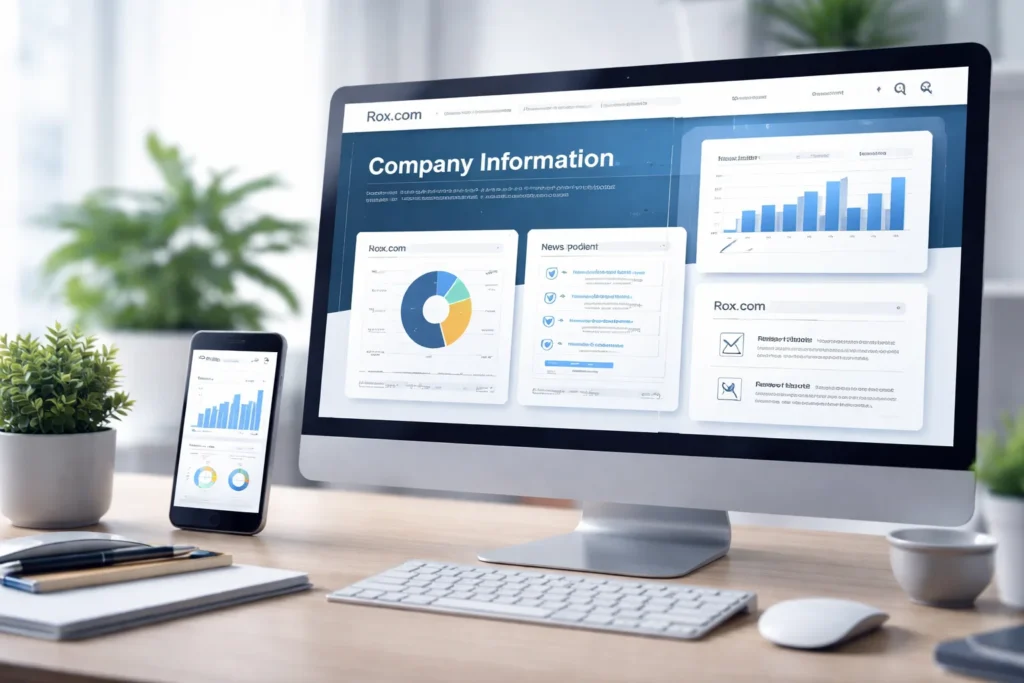Adverse News Screening: Why It’s Essential for Compliance and Risk Management

Because reputation and regulations are now strongly influenced by how people and the media view the company, screening for adverse news is now crucial for corporate compliance. Currently, companies are under careful watch from regulators as well as customers, investors and the public. One bad news story can negatively impact trust among stakeholders, cause problems in the business and result in expensive outcomes from law or regulations.
What is adverse news screening and why is it important for today’s organizations? In this article, we define identity and explain its role within a risk and compliance plan.
What Is the Process of Adverse News Screening?
It involves finding and reviewing negative or threatening information regarding people or companies. Most of the time, this data comes from news articles, regulations, blogs, legal documents and social media.
Often, this is called adverse media screening and serves to discover risks that standard background checks or financial checks might miss. The main purpose is to discover if there are any links to financial crime, corruption, financing terrorism, breaking sanctions or other wrongdoing.
Regulators across the globe, including the Financial Action Task Force (FATF), recommend adverse news or media screening as a key component of Know Your Customer (KYC), Customer Due Diligence (CDD), and Enhanced Due Diligence (EDD) efforts.
Why Should Adverse News Screening Be Important?
1. Regulatory Compliance
By law, financial institutions and regulated companies must carry out a thorough check before working with customers, partners or vendors. Such tools enable users to spot any involvement of companies in possibly wrongdoing or suspicious behavior. Never spotting such a risk may result in facing fines, sanctions or your license being taken away.
Regulatory bodies such as OFAC, FCA, and FinCEN explicitly encourage firms to incorporate adverse media search and screening into their AML (Anti-Money Laundering) compliance programs. They show a commitment to taking steps to discover and address possible risks.
2. Reputation is an important asset that needs to be protected.
Nowadays, information about negative events can reach many people much more quickly. If a company is unaware of someone in its network involved in scandals or crimes, it might end up with a reputation problem.
Adverse media monitoring allows organizations to identify issues and address them early. If a client or partner is mentioned negatively in the news, instant alerts and updates help compliance officers respond promptly and the business can take action to avoid any negative impact.
3. Improving the systems for managing risks
Monitoring for bad news can protect a business’s reputation and at the same time reduce risks. It contributes important knowledge beyond money and credit points, so groups can see the overall risk of the partners they are working with.
Organizations can achieve certain goals by using a strong adverse media screening strategy.
Find out about new risks.
- Review the current dangers that the organization faces.
- Make decisions using information that is specific to your organization.
How The Screening of Negative News Works
A. Checking the media for issues and controversies.
At this point, the system reviews different websites to find any references to an entity involved in criminal or shady activities. With the help of AI and Natural Language Processing (NLP), advanced tools can now differentiate between a relevant match and a name-based false positive.
B. Identifying and Gathering Information
After identifying the relevant content, tools group it according to the risk involved, including financial fraud, organized crime, environmental offenses or problems related to politics. It allows compliance professionals to organize alerts and respond to them appropriately.
C. Watching for Adverse Media All the Time
Screening should be done on a regular basis. A clean client may suddenly become risky if an investigation or new regulation is launched against them. With adverse media monitoring, companies discover any new adverse events related to the firms they monitor immediately.
Things to Consider When Choosing an Adverse Media Screening Tool
Organizations should focus on the following aspects when looking at adverse media screening tools.
When a new adverse event or article comes up, I notify you immediately.
- Access to a variety of news from around the world.
- AI-based features that help reduce mistakes in identifying significant threats.
- Flexible Risk Categories: Use your organization’s preferences and the needs of your industry to guide the analysis
Audit Trail and Reporting are necessary for showing that regulations are followed.
Failing to Pay Attention to Bad News
Those organizations that do not screen their adverse news well risk facing various problems.
Not following AML or KYC rules can lead to fines that are very high.
When a company partners with questionable or illegal groups, it can lose their customer’s trust.
Issues in Reputation: Finding out about reputation problems late can stop ongoing projects, contracts or deals.If adverse media screening is not followed in finance, healthcare and supply chain management, the results can be very serious and impossible to fix.
Conclusion
Since the rules for companies are getting stricter and information is available in greater amounts, it is now crucial for such businesses to screen adverse news.
It is now necessary to use adverse media screening tools from the moment a customer is added to when you are monitoring the relationship with them. Continuous checking of negative news and intelligent searches for adverse media help companies foresee risks, continue with compliance and protect their reputation in today’s unpredictable environment.
In finance, law or other regulated businesses, taking the right approach to Negative news screening helps maintain sustainable and secure activities.

Curtain Dry Cleaning and Leather Sofa Cleaning – Reliable Care by Duo Nini

Brian Ferdinand of EverForward Trading Joins Forbes Finance Council, Expanding His Voice on Markets and Risk

Get Any Company Objectives or News of rox.com

How Technology Is Changing Addiction Recovery in the Digital Age.

Our First Winter Trip to Aspen — And the Decision That Made It Stress-Free

Curtain Dry Cleaning and Leather Sofa Cleaning – Reliable Care by Duo Nini

Brian Ferdinand of EverForward Trading Joins Forbes Finance Council, Expanding His Voice on Markets and Risk

Get Any Company Objectives or News of rox.com








